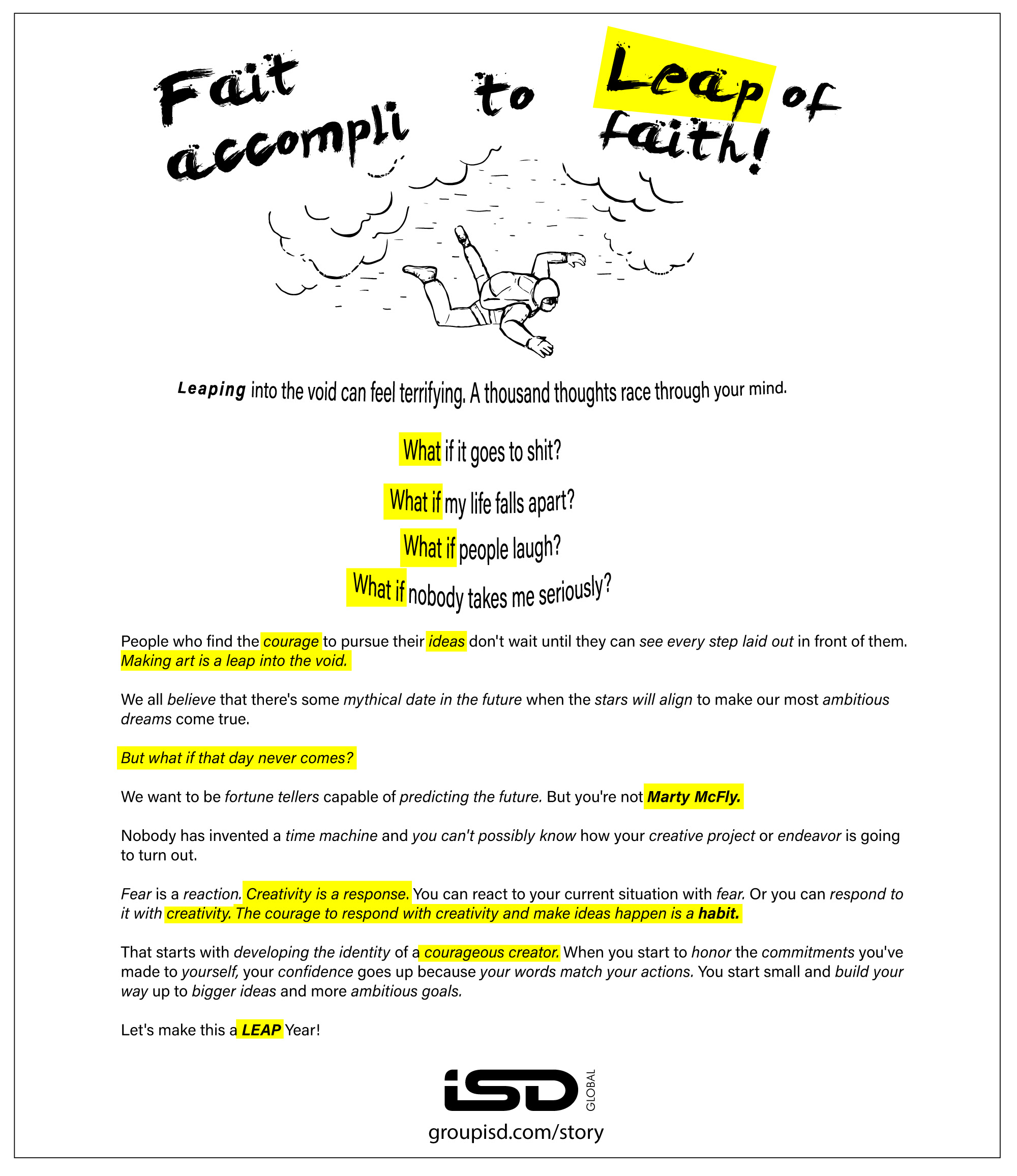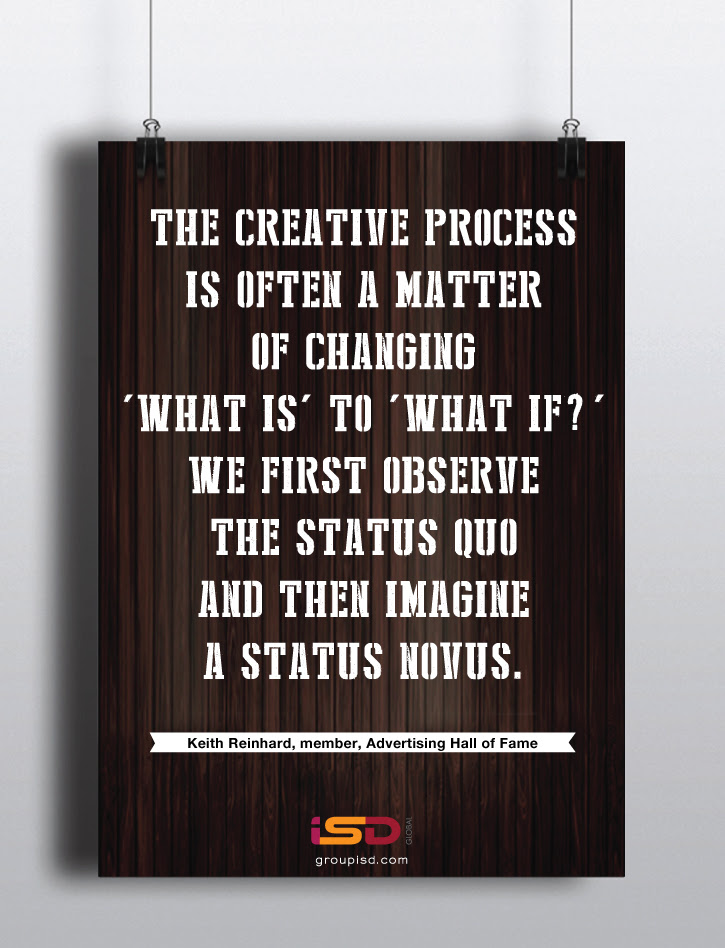“ When nothing is sure, everything is possible “- Margaret Drabble
Just as change is the only constant, the only certainty is uncertainty. And knowing how to live with insecurity is the only security. Life is shot through with uncertainty and sometimes that uncertainty rears its head in profound ways. The assertion here, however, is that there really is no creativity without uncertainty. Put another way: dubito ergo creo. This is Latin for, I doubt therefore I create.
The quest for certainty blocks the search for meaning. Uncertainty is the very condition to impel man to unfold his powers. Unleash, invent, create, discover, endure, heal, inspire, transform. Hope hinges on uncertainty. The audacity of hope is what keeps us going. Uncertainty is the refuge of hope.
The outside world provokes, persists and insists that we change the story we tell ourselves. Our attitude doesn’t have to be driven by the outside world, but sometimes they overlap.
Specifically, when we experience uncertainty – no matter how uncomfortable and unsettling and destabilizing it can feel – the good news is that it opens vistas of possibility for new thought and action. If we have the confidence and willingness to take creative action in that moment, then our experience with uncertainty can lead to new ways of thinking and acting. Taking action, of course, does not guarantee creative outcomes, but it is through new thought and action that we can, at least temporarily, re-stabilize our experiences in new and better ways.
“In detachment lies the wisdom of uncertainty…in the wisdom of uncertainty lies the freedom from our past, from the known, which is the prison of past conditioning. And in our willingness to step into the unknown, the field of all possibilities, we surrender ourselves to the creative mind that orchestrates the dance of the universe.” ~ Deepak Chopra.

Courtesy: ISD Global
Organizations are created, powered, and led by people. To lead organizations well, we train people in disciplines such as marketing, finance, and leadership. But uncertainty presents a special challenge since few of us have received training in how to deal with it. As a result, although we may call for innovation, transformation, and change, most people back down at even the hint of risk, falling into a series of behavioral traps that limit organizations’ ability to grow and adapt. The challenge is that all growth, change, and transformation inevitably come paired with uncertainty. We have to go through the uncertainty to get to the possibility.
The concept of creative learning describes how we can be moved into a state of actionable uncertainty whenever we experience optimally discrepant learning stimuli, which is something that is sufficiently different from our prior knowledge, understanding, or skills. Let’s remember our brains are hardwired to be lazy, so the reliance on default mode thinking and being in comfort zones is a natural fallout. Creative learning stimuli are optimally discrepant, meaning that they are not so different from our prior understanding that we can’t make sense of them, nor are they so familiar that we simply incorporate them into what we already know. This aspect of creative learning is similar to Swiss Psychologist Jean Piaget‘s conception of accommodation, which asserts that whenever we encounter new experiences that cannot be easily incorporated into our existing understanding, we need to change our existing knowledge structures to accommodate the new experience.
There are least three creative agency beliefs that seem necessary for us to act in the face of uncertainty. These beliefs include: creative confidence beliefs, perceived value of creativity, and creative risk taking.
Creative confidence or, more specifically, creative self-efficacy, refers to the confidence that we can think and act creatively in this moment. So, in the midst of uncertainty, our creative confidence beliefs become fluid and influenced by features and interactions situated in a particular time, task and context.
Perceived value of creativity also plays an important role. Even if a person has confidence to think and act creatively, if they do not value doing something new or different then they’re not likely going to invest the effort necessary to engage with the uncertainty they are experiencing in a creative way. Consequently, perceived value of creativity moderates the relationship among people’s potential to act creatively, their creative confidence beliefs, and their creative performance.
The third self-belief that seems to play a key role in taking action under uncertainty is the willingness to take the risks necessary for creative action. The willingness to take creative risks serves as a moderator between creative confidence and creative behavior.
Taken together, our judgements about our confidence, perceived value of creative action, and willingness to take creative risks seem to work together and inform us as to whether we will take creative action in the face of uncertainty.
We seem to be moving onward and upward from IQ(Intelligence Quotient) to EQ(Emotional Quotient) to AQ(Adaptability Quotient)– in uncertain times, the best strategy is adaptability. Covid-19 amply demonstrated the significance of adaptability as a powerful asset for individuals and organizations alike.
Creativity often aids adaptability. A creative approach to new and unfamiliar situations can often help circumvent apparent awkwardness and head off the lack of confidence that may begin to develop as others watch us struggle to adapt.
” The future is uncertain..but this uncertainty is at the very heart of human creativity “- Ilya Prigogine.
ENDS

 . Well, well, the best of them can’t get the future right, so what are we crowing about? The problem isn’t just with experts. No one is great at predicting the future. Much of life can’t be forecasted, diagrammed, or reduced to a PowerPoint deck. When the future doesn’t match our expectations, our projections get thrown out (or worse, they’re still followed).
. Well, well, the best of them can’t get the future right, so what are we crowing about? The problem isn’t just with experts. No one is great at predicting the future. Much of life can’t be forecasted, diagrammed, or reduced to a PowerPoint deck. When the future doesn’t match our expectations, our projections get thrown out (or worse, they’re still followed).